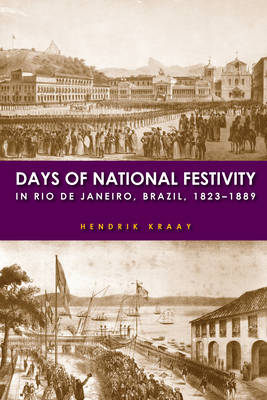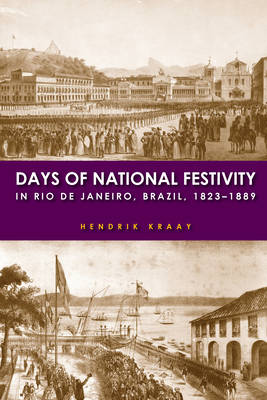
- Retrait gratuit dans votre magasin Club
- 7.000.000 titres dans notre catalogue
- Payer en toute sécurité
- Toujours un magasin près de chez vous
- Retrait gratuit dans votre magasin Club
- 7.000.0000 titres dans notre catalogue
- Payer en toute sécurité
- Toujours un magasin près de chez vous
Days of National Festivity in Rio de Janeiro, Brazil, 1823a 1889
Hendrik KraayDescription
Official and popular celebrations marked the Brazilian empire's days of national festivity, and these civic rituals were the occasion for often intense debate about the imperial regime. Hendrik Kraay explores the patterns of commemoration in the capital of Rio de Janeiro, the meanings of the principal institutions of the constitutional monarchy established in 1822-24 (which were celebrated on days of national festivity), and the challenges to the imperial regime that took place during the festivities. While officialdom and the narrow elite sought to control civic rituals, the urban lower classes took an active part in them, although their popular festivities were not always welcomed by the elite. Days of National Festivity is the first book to provide a systematic analysis of civic ritual in a Latin American country over a long period of time--and in doing so, it offers new perspectives on the Brazilian empire, elite and popular politics, and urban culture.
Spécifications
Parties prenantes
- Auteur(s) :
- Editeur:
Contenu
- Nombre de pages :
- 576
- Langue:
- Anglais
Caractéristiques
- EAN:
- 9780804785266
- Date de parution :
- 29-05-13
- Format:
- Livre relié
- Format numérique:
- Genaaid
- Dimensions :
- 155 mm x 231 mm
- Poids :
- 907 g

Les avis
Nous publions uniquement les avis qui respectent les conditions requises. Consultez nos conditions pour les avis.






